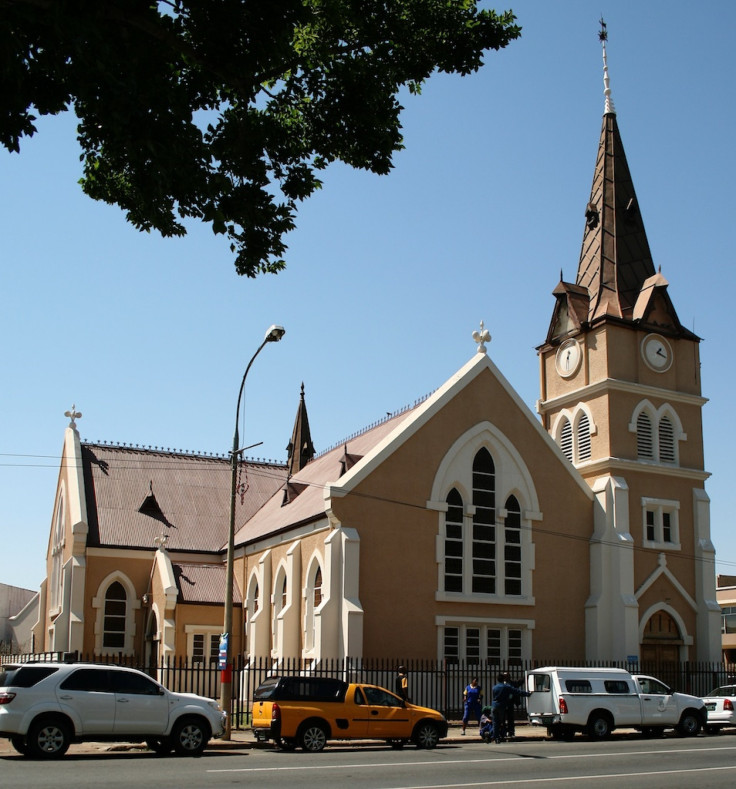World’s Oldest Person: South Africa’s Johanna Mazibuko Outlived Apartheid

When Johanna Mazibuko was born in South Africa in 1894, an Indian lawyer named Mohandas Gandhi had been in the country for about one year and the gold rush in the Transvaal region was only about a decade old. When she turned 5 years old, the second Anglo-Boer war (pitting the British against the Afrikaners) erupted and would last for three years.
By the time Mazibuko reached the age of 18, blacks and others in the country formed the Native National Congress, which would later be renamed the African National Congress. The following year, the government passed a law called the “Land Act” which would forbid black people like her from purchasing land (excluding the Cape Province). World War I (then called the "Great War") commenced when Mazibuko turned 20. But more relevant to her future, the National Party (the future architect of the apartheid regime) was also formed that same year.
Decades later, as a middle-aged woman, in 1948, the National Party took over South Africa and established a rigid policy of racial separation, essentially a law that would disenfranchise Mazibuko and millions of people like her. At the age of 66, in 1960, she likely was appalled by the massacre of 70 black demonstrators in the town of Sharpeville, a turning point in the ANC’s continued struggles against the apartheid regime. Four years later, Nelson Mandela, the leader of the ANC, would be sentenced to prison for life (Mazibuko was now 70).
Upon turning 82, in 1976, she no doubt became aware of one of the biggest disturbances of the apartheid era -- the riots in Soweto between black protesters and security forces which killed up to 600 people. By the end of the 1980s, Mazibuko, now well into her eighties, witnessed some extraordinary events: the release of Mandela and other ANC activists from prison, the legalization of the ANC, and, most incredibly, the repeal of apartheid laws by the country’s last white leader, F. W. De Klerk.
Now, in the third century of her epic life, Mazibuko, at the age of 119, may be the oldest person on earth, according to the Sowetan Times newspaper. Mazibuko’s identity papers, issued in 1986, indicate she was born on May 11, 1894. If her identity papers can be confirmed by the government, it would mean that she was actually older than the former record-holder, a Japanese man named Jiroemon Kimura who died in June at the age of 116. (The Guinness World Records claims the oldest living person is 115-year-old Misao Okawa, also from Japan.)
Mazibuko lives near Klerksdorp, northwest of Johannesburg, with her 77-year-old son Tseko Mazibuko who is also a pensioner. "I'm doing alright," she told The Sowetan newspaper. "God gave my life in abundance, plus a bonus. I am very old now.” Johanna still makes her own bed, cooks, dresses herself and does the laundry, and has outlived five of her seven children. "She is able to move on her own but cannot stand for a long time,” said Tseko. “She gets dizzy."
In any case, Johanna has already lived twice as long as her average countrymen. According to the World Health Organisation, the average life expectancy for a South African man is now 57 years, and 60 for women. (However, this data applies to babies born now, the expectancy rate for black South Africans in 1894 is unknown). Like much of sub-Saharan Africa, the AIDS plague killed millions and dramatically reduced the number of years people were expected to live during the past few decades.
Last November, South African president Jacob Zuma unveiled a plan to increase South Africa’s life expectancy by continuing to roll out anti-retroviral drugs (ARVs) to people afflicted with HIV/AIDS. Some 6-million people – almost 12 percent of the total population – suffer from HIV/AIDS, according to Reuters – but only 2 million take ARVs daily. “There are many factors that contribute to life expectancy but the single most important one was the expansion of the ARV treatment program,” said Professor Salim Abdool Karim, director of the Centre for the AIDS Program of Research in South Africa.
Incidentally, Johanna is 21 years older than Mandela, who just turned 95.
© Copyright IBTimes 2024. All rights reserved.





















